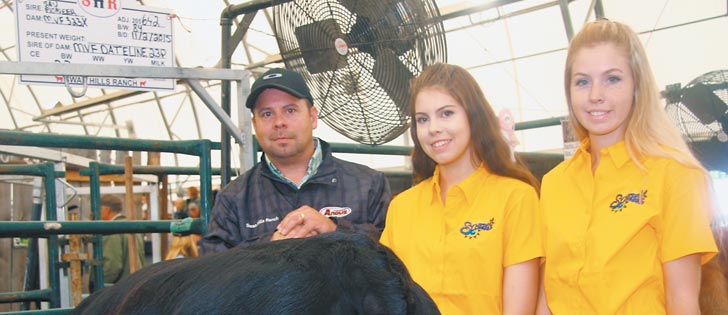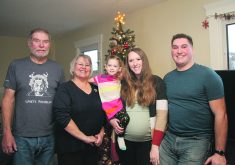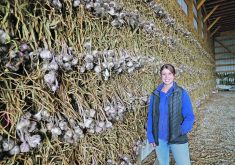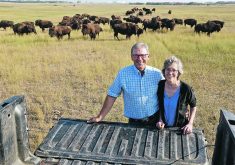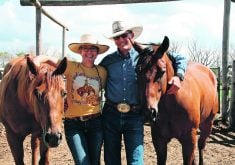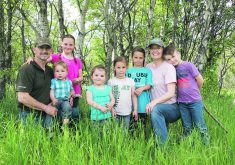Couple has off-farm jobs, raise purebred Black Angus, grow feed, sell embryos and sit on a sustainable development board
BENITO, Man. — Escapes to cattle shows and the lake are necessary distractions for the busy Tibble family.
Cindy and Scott have balanced careers on and off the farm while raising three school-aged children: Martina, Robyn and Parker.
“You almost have to get away from everything just to relax,” said Cindy of days at a nearby provincial park on their pontoon boat.
“If you stay, you tend to work.”
The couple farms 9 1/2 quarters of land, seven of which they own, and raise purebred Black Angus cattle in the productive grain growing area of the Swan River Valley.
Read Also
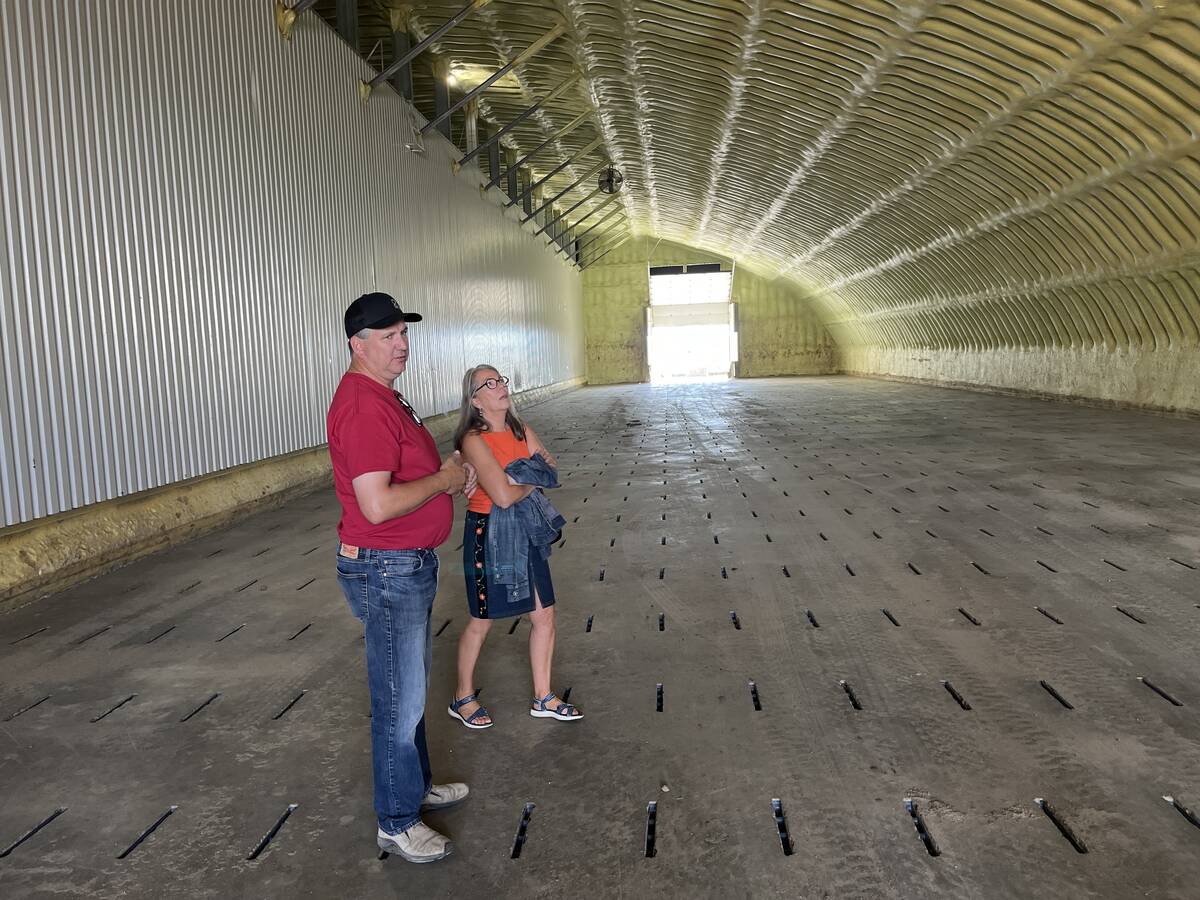
Potato farm requires year-round management
The most recent Open Farm Day in Alberta showcased agricultural producers across the province educating the general public about the process that is required is to get food to their table.
Cindy works part-time work as a justice of the peace and court clerk, saying the half hour drive is better than the typical urban commute.
“I could be living in Winnipeg, driving 20 minutes in bumper to bumper traffic,” she said.
Scott relies on Cindy to keep everyone organized.
He works as an auctioneer and realtor in addition to selling cattle embryos internationally. It’s that diverse employment that sees them through the challenges in farming, such as the BSE outbreak.
“I have other eggs in the basket that I can rely on,” said Scott.
When others were leaving the cattle business in the 1990s, the Tibbles persevered.
“We went and took the bull by the horns and went and found our own customers and eliminated the middlemen,” said Scott.
They sold cattle from the farm to urban markets, including a Winnipeg restaurant in which they had a share.
In addition to their multi-family Blue Collar bull sale in Yorkton, Sask., in April, the Tibbles also attend six cattle shows a year. Last month, Martina’s steer finished fifth among 63 steers in the carcass class at the Calgary Stampede Quality Beef Competition.
Stock shows, clinics and 4-H are grooming the children for the business in future, said Scott.
Martina will begin studying animal science at the University of Saskatchewan’s agriculture college this fall, with an eye on entering veterinary medicine.
Scott was raised in town and credits his neighbours with helping ease him into agriculture and starting the Swan Hills Ranch. He began with a few cows, built up his herd and developed an interest in genetics.
“That passion has spilled over to the girls,” said Cindy.
The Tibbles involve family and hired help to grow feed and tend to livestock.
“We rely on a lot of people to make things work,” said Scott.
When Martina is away at school, Robyn will help fill her shoes.
“But they’re kids and we want them to have some fun,” said Scott, who noted the children are out of school up to 22 days a year at shows and related events.
He also travels frequently, noting his position on a provincial government roundtable group about sustainable development.
“I’m bringing lot of grassroots, practical ideas to the table,” said Scott, one of the few rural appointees on the 35 member board.
Citing the push for carbon credits and a lighter eco footprint, Scott said farmers are already efficient in running their operations.
“We are not going to burn any more diesel than we have to,” he said. “People in the city use a litre of Roundup to kill weeds in their front flower beds. One or half a litre is good for one acre on the farm.”
He also counters arguments about cattle creating greenhouse gases, noting their positive role in making use of marginal lands.
“Cattle can graze where crops can’t grow and where erosion is happening,” he said.
The Tibbles will continue to focus on improving genetics in the herd and seek international buyers for their embryos. Scott called Canadian beef a distinct brand, citing differences between corn and barley finished cattle.
“We raise a superior product and we have to continue to promote our Canadian beef instead of having it incorporated into the U.S.,” he said.



